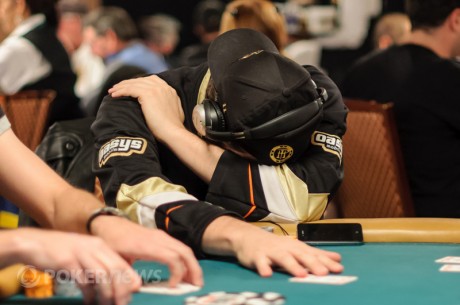The Poker Shrink, Vol 32 - Luck or Variance? Magic or Math?

Just how much luck is there is poker? I have stood with some of the biggest names in poker and heard them toss out numbers like 50% or 10%. More complicated answers often sound like "90% short term but only 5% long term" or "a lot more today with all the donkeys in the game". But not once have I heard any of the great players, or average players or even a single Friday night fish give the only, the one and only correct answer to this question. So what is this ultimate answer?
There is no such thing as luck in poker!
There is variability and variance but you know and I mean you know that over time it all evens out; you know you want the donkey calls all day, every day; even though a four-outer on the river will sometimes knock you out of a tournament. From a psychological perspective I want to argue that any belief in luck is detrimental to your bankroll and to your ability to play your "A" game.
Before I make my argument, let's take an example of what some call luck or bad luck and what should be correctly identified as variance. You know what variance is right?
I quote Mike Caro: "A measure of the spread of a statistical distribution about its mean or center. With respect to poker, the distribution of your results over a set of hands or sessions, or the swings in a positive or negative direction of cash flow. The greater the variance, the wilder the swings; the lower the variance, the more likely a given session results will be close to one's average result."
Now if you play perfect statistical poker then your variance will be based on the times that the "odds" or the "distribution of results" go against you. Or what some would call "bad luck" for you and "good luck" for your opponent.
Now to our example: You and one opponent are all-in on the turn, the cards are turned over, you are ahead and your opponent has four outs. What does this mean statistically?
Well in a 52 card deck you can see 8 cards (4 on the board and 2 each in 2 hands), so there are 44 unseen cards and 4 of them win for your opponent and lose for you. Statistically you will win 40 times out of 44 or 10 out of 11 times.
So no reasonable person should disagree that on average 1 time in 11 they will lose in this situation. Ask any good poker player if they are willing to risk their tournament on a 10 to 1 draw and they will say: "Yes!" Every single time. The question is simple, do you say yes to this propostion every single time? If you do then you understand variance and you reject the fuzzy logic of luck. Furthermore, you understand that sitting down at a poker table engages you in a game that is, in fact, gambling and you are doing this voluntarily.
Now the question arises: Why does a belief in luck have a negative effect on my game? The leak in your game occurs not when you are unlucky (when the statistical variance goes against you) but when you are lucky (when you are the donkey needing the 4 outer or the runner, runner diamonds). You hit your miracle card and you think: "I got so lucky!" Wrong! You got your chips in with the worst of it, you risked your tournament on a 1 in 10 play but because you think "lucky" you do not do the analysis of "Why did I do that?" You don't learn from your mistakes, instead to write off your tournament survival to "Luck."
Tell the truth, do you analyize only the hand you bust out on or do you look carefully as the hands where you got "lucky"? If we truly learn from our mistakes then improving our game must include admitting our mistakes and taking a look at them. Don't blame your losses on luck, it was variance. Don't credit your suckouts to luck but rather take a good, long hard look at how you tempted variance and learn not to do that. Get it in 10 to 1 not the other way around.








